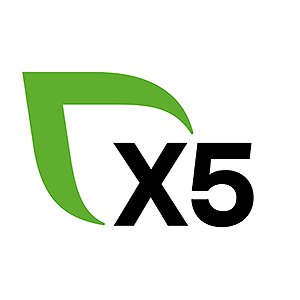X5 Group launches Russia’s first retail packaging sustainability guidelines
X5 Retail Group is launching environmentally sustainable packaging guidelines for suppliers. The Russian food retailer identifies PET, HDPE, LDPE and PP polymers, alongside paper, glass and metals as “most preferred packaging materials.”
“Less preferred” are biodegradable materials – ranging from fossil raw materials PBAT, PBS and PGA to natural raw materials PLA and PHA. Overall, polymers like PVC, PS and other types of plastic combinations are “least preferred.”


“In 2020, Russian state auditors announced 7 percent of waste in Russia is recycled, but that is poised to change rapidly,” Yana Synesiou, X5 director of sustainability, tells PackagingInsights.
The country aims to recycle 60 percent of its waste by 2030, establishing 200 new waste sorting facilities.
“Although Russia lacks much of the [recycling] infrastructure, this creates a real opportunity for corporations to fill those gaps and lead the way through initiatives such as the sustainable packaging guidelines.”
Action against disposables
Reducing the amount of packaging sent to landfills and promoting recycling are major environmental challenges faced by FMCG and retail companies, details Igor Shekhterman, CEO of X5 Retail Group.
“For the first time in Russia, a large retailer has advised its suppliers against using disposable plastic packaging for their fruit, vegetables and other products and replace it with easily recyclable packaging,” adds Dmitry Nesterov, a Zero Waste Project expert.
X5 recommends suppliers be guided by the following criteria:
- Packaging should be labeled with information about the origin and properties of the materials it is made of;
- Consumers should be informed and educated on ways to recycle the packaging;
- The life cycle of the product should be evaluated and indicated on the packaging.
X5 further recommends suppliers select and develop packaging designs for products based on reusability and single-layer packaging. This includes considerations for renewable, recycled and reusable materials in Russia.
Packaging design should also be uniform and optimized in terms of size, weight, number of layers and layer materials, absence of labels and other elements preventing easy collection and recycling.
The feedback to the recommendations has been “overwhelmingly positive,” says Synesiou.
No common standard
X5’s comprehensive packaging recommendations are the result of a collaborative effort. X5 held discussions with the suppliers of all 13 product categories it caters to and considered expert opinions from industry non-profits, packaging manufacturers and waste management companies.
“We quickly realized that there is no common standard of sustainable packaging across product types,” Synesiou explains.
For instance, packaging suitable to package fish may not work for tobacco products or household chemicals, and vice versa.
“This required us to lead many discussions with various experts and suppliers to land on optimal, sustainable guidelines,” Synesiou reveals. In total, X5 received feedback from 23 suppliers and 16 experts.
“Supplier relations at X5 illustrate how large businesses involve their partners in the decision-making process and share the message that sustainable development is crucial along the entire supply chain,” comments Ivan Kukhnin, partner and head of sustainability services at Deloitte CIS.
Maxim Remchukov, sustainable development director at SIBUR adds: “Recommendations for suppliers should be an easily adaptable, flexible document, which is regularly updated in response to the sustainability agenda and developments in waste management in Russia.”
“X5 encourages suppliers, partners, NGOs, industry associations and other retailers to freely use the X5 Sustainable Packaging Recommendations in their packaging production and management, and invites all stakeholders to continue the dialogue to improve the Recommendations,” Shekhterman affirms.
Reuse for the win?
While they are currently not obligatory, Zero Waste Project hopes the X5 recommendations will become mandatory in the future. “The next step might be a gradual transition to reusable packaging, where possible.”
X5 Retail Group “quickly realized” a collaborative approach would be necessary for successful sustainable packaging guidelines.
Innova Market Insights pegged “Reusable Revolution” as one of its top packaging trends for 2021. It spotlights the increasing scalability of reusable packaging models targeting a zero-waste world.
Despite COVID-19 mobility restrictions, the success of X5’s recycling programs “proves that our customers care about sustainability,” says Synesiou.
“In 2020, almost 28,000 buyers returned about 248,000 packages. Since the beginning of the project, about 310,000 packages have been collected and sent off since August,” she explains.
To further address customer demand for convenient recycling options, X5 has also launched a pilot program installing reverse vending machines that collect plastic packaging for recycling in its stores and offer coupons to customers who use them.
“In our Perekrestok and Pyaterochka stores, we provided the option when checking out to receive an electronic receipt rather than printed paper, which was extremely popular with our customers,” Synesiou concludes.
By Anni Schleicher
Source: PackagingInsight
Articles
All news (28)
Правила использования сайта
Общие положения
1.1. Все права на Сайт принадлежат ПАО «Корпоративный центр ИКС 5», адрес места нахождения: 119049, Россия, Москва, улица Коровий Вал 5, стр. 1 (далее — «Компания»). Настоящие Правила регулируются законодательством Российской Федерации, действие Правил ограничено территорией Российской Федерации.
1.2. Компания рекомендует Пользователям Сайта ознакомиться с данными Правилами, а также Политикой Компании по обработке персональных данных. Пользуясь Сайтом, Пользователи Сайта подтверждают свое согласие с положениями Правил, а также Политикой Компании по обработке персональных данных.
2. Интеллектуальные права
2.1. Все права на Сайт принадлежат ПАО «Корпоративный центр ИКС 5», адрес места нахождения: 119049, Россия, Москва, улица Коровий Вал 5, стр. 1 (далее — «Компания»). Настоящие Правила регулируются законодательством Российской Федерации, действие Правил ограничено территорией Российской Федерации.
Правила использования сайта
Общие положения
1.1. Все права на Сайт принадлежат принадлежат ПАО «Корпоративный центр ИКС 5», адрес места нахождения: 119049, Россия, Москва, улица Коровий Вал 5, стр. 1 (далее — «Компания»). Настоящие Правила регулируются законодательством Российской Федерации, действие Правил ограничено территорией Российской Федерации.
1.2. Компания рекомендует Пользователям Сайта ознакомиться с данными Правилами, а также Политикой Компании по обработке персональных данных. Пользуясь Сайтом, Пользователи Сайта подтверждают свое согласие с положениями Правил, а также Политикой Компании по обработке персональных данных.
2. Интеллектуальные права
2.1. Все права на Сайт принадлежат принадлежат ПАО «Корпоративный центр ИКС 5», адрес места нахождения: 119049, Россия, Москва, улица Коровий Вал 5, стр. 1 (далее — «Компания»). Сайт посвящен торговым центрам «МЕГА». Настоящие Правила регулируются законодательством Российской Федерации, действие Правил ограничено территорией Российской Федерации.
Правила использования сайта
Общие положения
1.1. Все права на Сайт принадлежат принадлежат ПАО «Корпоративный центр ИКС 5», адрес места нахождения: 119049, Россия, Москва, улица Коровий Вал 5, стр. 1 (далее — «Компания»). Настоящие Правила регулируются законодательством Российской Федерации, действие Правил ограничено территорией Российской Федерации.
1.2. Компания рекомендует Пользователям Сайта ознакомиться с данными Правилами, а также Политикой Компании по обработке персональных данных. Пользуясь Сайтом, Пользователи Сайта подтверждают свое согласие с положениями Правил, а также Политикой Компании по обработке персональных данных.
2. Интеллектуальные права
2.1. Все права на Сайт принадлежат принадлежат ПАО «Корпоративный центр ИКС 5», адрес места нахождения: 119049, Россия, Москва, улица Коровий Вал 5, стр. 1 (далее — «Компания»). Сайт посвящен торговым центрам «МЕГА». Настоящие Правила регулируются законодательством Российской Федерации, действие Правил ограничено территорией Российской Федерации.
Subscribe to X5 sustainability news
By submitting your email for receiving information materials on ESG from X5 Group, you agree to the Terms of processing your personal data and receiving information letters from X5 Group.
